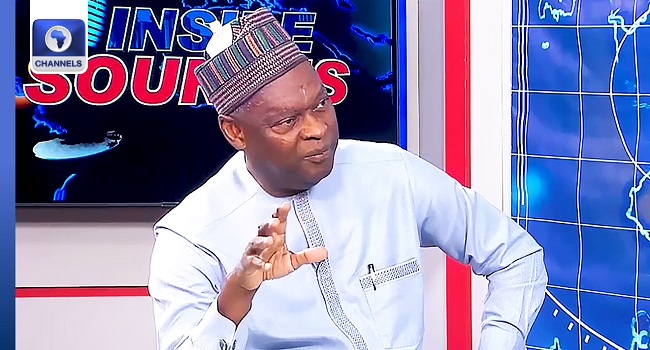Kyari Bukar, former Chairman of the Nigerian Economic Summit Group (NESG), has criticized the inefficiencies and cumbersome bureaucracies of the Nigeria Customs Service and related agencies, such as the Nigerian Ports Authority (NPA), for causing Nigeria to lose significant trade volumes to Cotonou ports in Benin Republic.
Bukar, who is also Managing Partner at Trans-Saharan Investment Corporation, revealed during an appearance on Inside Sources with Laolu Akande on Channels Television that many international shipments destined for Nigeria are instead routed through Benin due to the greater efficiency and lack of bottlenecks at Cotonou’s ports.
He argued that the Nigerian Customs Service should prioritize facilitating trade and economic development rather than focusing primarily on revenue generation. The bureaucracy and inefficiencies at Nigerian ports, according to Bukar, are part of a corrupt system that impedes progress.
As Chairman of SUNU Assurance Plc, Bukar also emphasized the need for the Federal Government to prioritize fixing Nigeria’s energy sector to foster economic growth. “Electricity must be readily available because it’s a critical catalyst for economic development,” he stated, adding that infrastructure such as roads, rails, bridges, and ports must be in good condition for sustainable growth.
Bukar explained that Nigeria’s inefficient ports have given a competitive advantage to neighboring countries. He cited a personal experience during a visit to Cotonou, where he observed significant improvements in port infrastructure. He also relayed a story from a friend who visited a Brazilian meat-exporting company that primarily ships to Benin Republic rather than Nigeria, with much of the product being trans-shipped into Nigeria due to Benin’s more efficient port system.
Bukar warned that Nigeria risks losing out on opportunities from the African Continental Free Trade Area (AfCFTA), which aims to create a single market for goods and services across the continent. “If we don’t address these inefficiencies, we could face a losing battle under AfCFTA. We need to align our actions with our words,” he said.
He questioned whether businesses would choose to operate in Nigeria given the hassles they face at its ports, compared to the ease of doing business in neighboring countries. “If importers can simply make a phone call and have goods cleared smoothly at another port, without demurrage fees or harassment from multiple agencies, why would they choose Nigeria?”
Bukar added that the demurrage fees alone in Nigeria significantly burden businesses and contribute to a drag on economic growth by slowing the flow of goods. He cited complaints from clients to the Presidential Committee on Tax Reforms, noting instances where export items rotted at Nigerian ports due to delays, while containers returned empty.
The former NESG chairman called for sanctions against those responsible for the inefficiencies at Nigerian ports. “To fix the country, we must punish acts of malfeasance. Public accountability will drive behavioral change,” he concluded.


